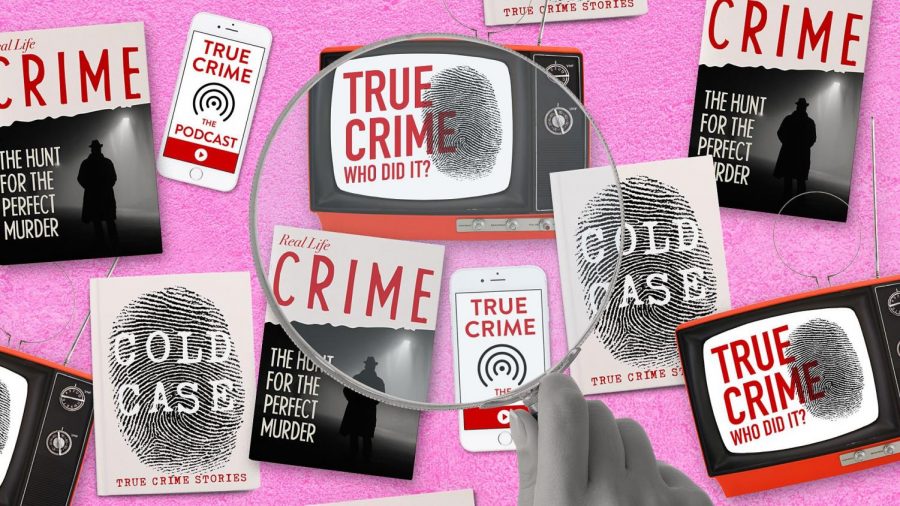True Crime Isn’t Killing Our Ethics. Case Closed.
“Who’s your favorite murderer?” is probably not something you’d want to hear at a corner of a coffee shop. As our society’s obsession with true crime grows, more and more complications arise surrounding ethics and morality. The implications and consequences of using criminals as stories for entertainment have resulted in problems more severe than a couple conversation starters. While true crime isn’t inherently immoral or unethical, there are still ramifications that consumers should be wary about.
Why do so many people find entertainment in stories about heinous criminal acts? The answer lies in human psychology. Dr. Michael Mantell, a clinical and corporate psychologist, told NPR that, “There has always been this deep, deep fascination with good and evil. Our fascination with crime is equaled by our fear of crime. It’s two sides of the same story.” True crime delivers everything that makes a good plot: feelings of adrenaline, exhilaration, and suspense draw viewers in with a clear and defined villain and a satisfying conclusion. Horror is gratifying to many because it evokes strong emotional responses or can be used as a coping mechanism to avoid feelings of anxiety.
Many psychologists and psychoanalysts have dived deep into true crime, questioning if it actually affects the mental health of its consumers. Some argue that continuous exposure to graphic stories can desensitize the individual. This affects their emotional responses by normalizing violence and aggression while stripping them of empathy. Others can get triggered, especially those who have experienced something similar and struggle with PTSD. Viewers have expressed unsettling feelings of being constantly watched or being convinced that they were going to be killed.
Additionally, victims of the crimes can be disregarded and considered side characters of the plot. Many true crime stories put more of the focus on the bad guy and fail to do the same for their victims, the actual “good” guys. On top of that, victims might have to relive the experience as something that was traumatic and life-threatening is being broadcasted for the entertainment of millions. True crime has the potential to influence and affect the lives of real people that aren’t just characters in a story. Time Magazine reported on Rosalee Clark, who is just one of many that fell victim to not just her family’s murderer, but to the true crime industry as well. Clark found Wedderburn while bookhunting, and through closer investigation, found that the author had documented and published the murder of her brother, mother, and step father for thousands to read.
“We’re treated as fodder,” says Clark. “We’re fuel for people’s fascination” .
So, where does that leave us? Are we masochists for finding entertainment in murder? If true crime is negatively affecting both viewers and victims, what do we do? It’s not plausible to stop the world from listening in on the next juicy murder mystery.
There’s a reason that true crime has become so popular: they have captivating stories with simple plots but complex characters and a distinct good versus evil. However, it’s important to distinguish the audience from the content. People that enjoy true crime do not enjoy murder. They find entertainment in the mystery.
The genre itself should not be seen as inherently bad. As long as the audience is aware of the negative stereotypes and potentially harmful messages, true crime can stay. Although tragic, the audience isn’t to blame for what directors and writers put out that could hurt victims. However, that’s not to say that the audience shouldn’t condone these actions.
In regards to personal health, if you ever find consumption of true crime content affecting your mental health, it’s important to recognize these signs and take a break.







